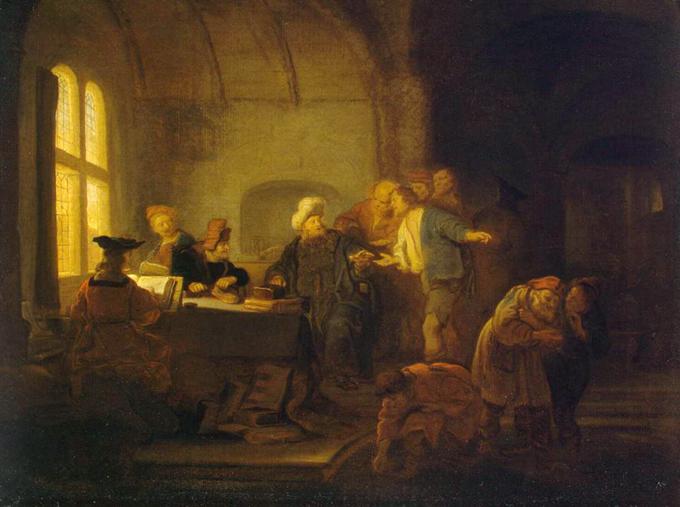
Faith
God is superabundantly generous in ways that go beyond human standards of fairness and justice. We often measure out compassion and love, according to spoken and unspoken rules. God's love does not work that way. God's love is limitless generosity, as the prophet Isaiah affirms when he invites the people of Israel to turn to the Lord for mercy, to God who is abundantly generous and forgiving.
Is 55:6-9
Ps 145:2-3, 8-9, 17-18
Phil 1:20c-24, 27a
Mt 20:1-16a
The paradox we encounter in Gospel parables is meant to open us up to a deeper understanding of who God is and who we are in relationship to God. To unpack the deeper meaning of the parable takes time, reflection, and silence. We are challenged to "think outside the box" to understand the meaning of God's word. This is particularly true of today's Gospel parable that invites reflection on how different God's ways are from our ways, as the prophet Isaiah reminds us in the first reading.
On the surface, the scene in the Gospel appears unfair, even unjust, as workers who come at the 11th hour are paid the same as those who work all day. From a purely human standpoint this scenario makes little sense. And that's when we realize something deeper is unfolding.
Jesus does offer a lesson on how to run an ethical business or payroll. In fact, the parable has nothing to do with economics. To understand we must look at the deeper meaning of Jesus' imagery -- which his audience would have grasped.
When the crowds heard Jesus speak of a vineyard, they knew it pointed to the people of Israel. And the vineyard owner was an image for God's generous love revealed in Jesus' ministry of healing, preaching, and teaching. Those who worked the entire day were like the many devout, pious people of Jesus' day. They would receive their just reward at the right time. Those who were hired at mid-day were like those who lived on the margins of society and responded in faith to Jesus' message. Finally, there are sinners, tax collectors, and outcasts. They are getting much more than they deserve or have worked for. They are receiving the overflowing generosity and compassion of God's love. Because God is love.
This parable invites us to look with the eyes of Jesus as he extends God's mercy and generosity, especially to sinners and outcasts, to the poor and the defenseless. When we come into God's presence, we resist the temptation to focus on our rights and our expectations. God cannot be outdone in generosity. God is generous in a way that far surpasses our best human standards of justice and fairness. This generosity of God is highlighted in the message conveyed by the prophet Isaiah: "my thoughts are not your thoughts, nor are your ways my ways, says the Lord."
God is superabundantly generous in ways that go beyond human standards of fairness and justice. We often measure out compassion and love, according to spoken and unspoken rules. God's love does not work that way. God's love is limitless generosity, as the prophet Isaiah affirms when he invites the people of Israel to turn to the Lord for mercy, to God who is abundantly generous and forgiving.
The word of God challenges us to make generosity and compassion a way of life, rather than something done only in times of crisis and turmoil. Scripture opens our hearts to God's deep, generous love poured out for us on the cross of his son Jesus. Having encountered the healing power of that divine love, we let Jesus' cross serve as the model for how we treat others.
Each one of us has been forgiven and loved immeasurably, beyond human standards or expectations. Knowing God's generosity, I can become a channel of God's love to others as I pray in faith, "speak to me, Lord."
Question: How does Jesus' parable help you understand the immensity of God's love and mercy?
Recent articles in the Faith & Family section
-
A heartfelt thanks in Ordinary TimeLucia A. Silecchia
-
Can my friend's annulment case be sped up so she can enter the church at Easter?Jenna Marie Cooper
-
Through to PentecostFather Robert M. O'Grady
-
Behold the ManArchbishop Richard G. Henning
-
Living a Life of GratitudeMaureen Crowley Heil























